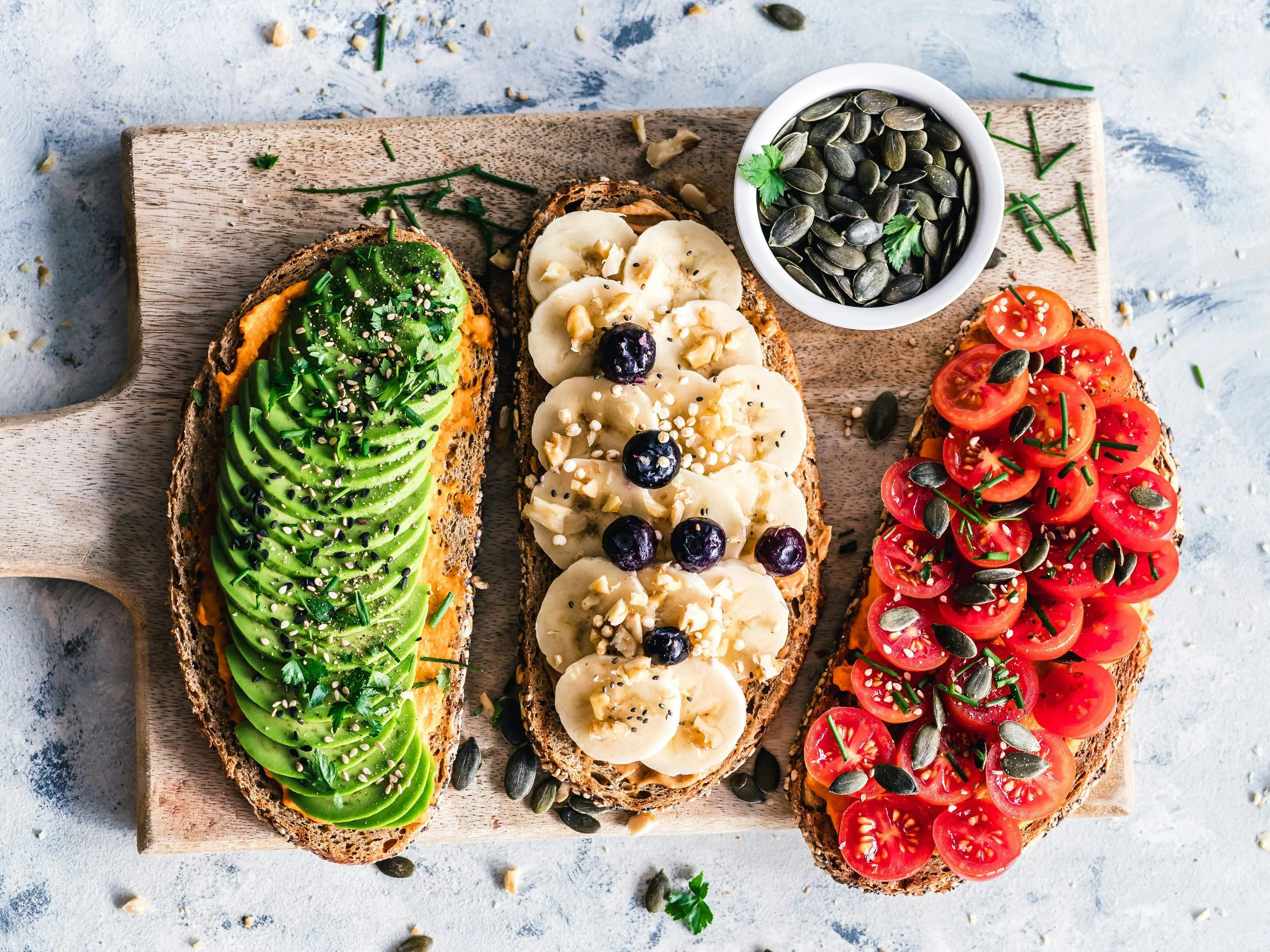-

The Joy of Salads
Salads are often considered a cornerstone of healthy eating due to their rich nutritional profile and numerous health benefits. Below, we will explore these benefits step by step.
Salads are packed with essential vitamins and minerals. Leafy greens such as spinach, kale, and romaine lettuce are rich in vitamins A, C, K, and several B vitamins including folate. These nutrients play crucial roles in various bodily functions:
Vitamin A is vital for eye health and immune function.
Vitamin C supports collagen production, aids in healing, and enhances iron absorption.
Vitamin K is important for blood clotting and bone health.
Folate is essential for DNA synthesis and repair, making it particularly important during pregnancy.
Many salad ingredients contain antioxidants that help protect the body from oxidative stress. Ingredients like tomatoes (rich in lycopene), carrots (high in beta-carotene), and various berries provide antioxidants that combat free radicals. This can reduce the risk of chronic diseases such as heart disease and cancer by preventing cellular damage.
Salads are an excellent source of dietary fiber. Fiber is crucial for digestive health as it promotes regular bowel movements and helps prevent constipation. It also contributes to satiety, which can aid in weight management by helping individuals feel full longer without consuming excessive calories. High fiber intake has been linked to lower risks of cardiovascular disease and colorectal cancer.
Incorporating salads into your diet can support weight loss or maintenance efforts. Salads are typically low in calories but high in volume due to their water content. This allows individuals to consume larger portions while keeping calorie intake low. Additionally, the fiber content helps regulate appetite by promoting feelings of fullness,
Regular consumption of salads can enhance gut health. The variety of vegetables provides prebiotics—non-digestible fibers that feed beneficial gut bacteria—promoting a healthy microbiome. A balanced gut microbiome is associated with improved digestion, enhanced immune function, and even better mental health.
Salads can contribute to heart health through their nutrient composition. Ingredients like leafy greens are low in saturated fat and cholesterol while being high in fiber, potassium, and antioxidants—all factors that can help lower blood pressure and cholesterol levels. Adding healthy fats from sources like avocados or nuts further supports cardiovascular health.
Many salad ingredients have high water content, which contributes to overall hydration levels in the body. Proper hydration is essential for maintaining bodily functions such as temperature regulation, nutrient transport, and toxin elimination.
Salads provide nutrients that bolster the immune system. Vitamins C and E found in various salad components enhance immune response by supporting white blood cell production and function. Additionally, phytonutrients present in colorful vegetables contribute to overall immune defense.
Certain nutrients found in salads may positively impact mental health. For instance, folate has been linked to mood regulation; deficiencies have been associated with increased risk of depression. Furthermore, omega-3 fatty acids from nuts or seeds included in salads support brain health.
The benefits of a salad to the body include providing essential nutrients, antioxidants, dietary fiber for digestive health, support for weight management, improved gut health, heart health benefits, hydration support, immune system enhancement, and positive effects on mental well-being.
-

Robust Sandwiches
Vegan sandwiches are delicious and also incredibly easy to prepare. Here’s a breakdown of the steps involved in making them, showcasing their simplicity and versatility.
Choosing Ingredients by electing fresh and colorful ingredients not only enhances the flavor but also makes the sandwich visually appealing.
Meal Prepping Ingredients is a significant advantage of vegan sandwiches because many ingredients can be prepped in advance. It also streamline the assembly process on busy days.
Simple Assembly Process is certainly straightforward. The simple assembly method allows for creativity while ensuring that each sandwich is packed with nutrients.
Customization Options offer endless customization possibilities like experimenting with different spreads, various proteins for diversity and using seasonal vegetables to keep things interesting throughout the year. This flexibility makes it easy to cater to personal preferences or dietary needs without the preparation process.
Quick Preparation Time once your ingredients are ready. It’s an ideal option for lunch at home or on-the-go meals.
Making vegan sandwiches is a simple process that involves choosing fresh ingredients, meal prepping when possible, following an easy assembly method, customizing according to taste preferences, and enjoying a quick preparation time.
They stand out as an accessible option for anyone looking to enjoy healthy meals without extensive cooking efforts.
-

Cantaloupe
Cantaloupe Juice – Health Benefits, Uses and Important Facts
Juicing is one of the best things you can do for your health; it extracts the nutrients from fresh fruits and vegetables and offers them to your body in a form that is easily processed and readily digestible.
In addition to being delicious, cool, and refreshing, cantaloupe juice is an excellent source of vitamin B6, vitamin A, niacin, and folate. Additionally, it is rich in vitamin C. As a result, one of its primary advantages lies in the fact it is packed with immune-boosting nutrients and multiple antioxidants.
Cantaloupes he key ways in which cantaloupe can positively impact hair:
Cantaloupe is particularly high in vitamins A and C, both of which play crucial roles in maintaining healthy hair:
Vitamin A: This vitamin is essential for the production of sebum, an oily substance produced by sebaceous glands that keeps the scalp and hair moisturized. Adequate levels of vitamin A help prevent dryness and promote a healthy scalp, which is vital for optimal hair growth1.
Vitamin C: This vitamin is necessary for collagen production, a protein that provides structure to hair. Vitamin C also acts as an antioxidant, protecting hair from oxidative stress caused by free radicals. Cantaloupe aids in the absorption of iron from plant-based foods, which is important since iron deficiency can lead to hair loss.
Cantaloupe has a high water content (about 90%), making it an excellent choice for hydration. Proper hydration is essential for maintaining healthy hair because dehydrated hair can become brittle and prone to breakage. Cantaloupe helps keep your body hydrated, which in turn supports overall hair health.
Cantaloupe contains various antioxidants such as beta-carotene, lutein, and zeaxanthin; compounds which help combat oxidative stress that can damage hair follicles and lead to premature aging or loss of hair. By reducing oxidative damage, these antioxidants contribute to healthier and stronger hair.
In addition to vitamins A and C, cantaloupe provides other nutrients beneficial for hair health:
B Vitamins: Cantaloupe contains B vitamins like niacin (B3) and folate (B9), which are important for promoting blood circulation to the scalp and nourishing hair follicles.
Minerals: The fruit is rich in potassium and magnesium, both of which support overall cellular function and may help prevent issues related to weak or thinning hair.
The combination of vitamins A and C along with its hydrating properties makes cantaloupe effective in promoting a healthy scalp environment. A well-nourished scalp leads to better conditions for hair growth.
Incorporating cantaloupe into your diet can provide numerous benefits for your hair due to its rich nutrient profile, hydrating properties, and antioxidant content. Regular consumption may contribute to healthier, stronger locks while preventing dryness and brittleness.
